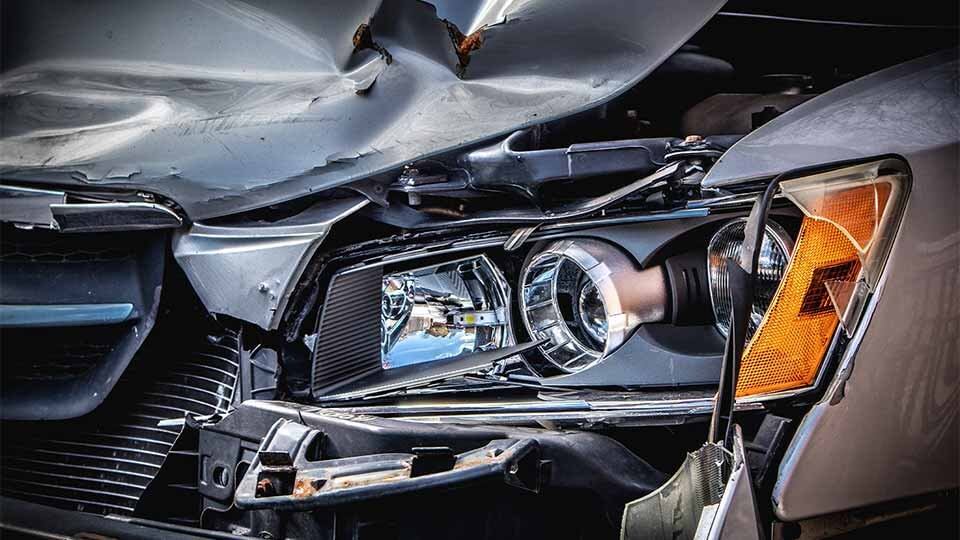Work Accident
Expert Amputation Injury Solicitors
APIL Accredited Solicitor
Track record of successful £1,000,000 claims
Supreme Court Winner
Call 0800 0747 644 now or request a callback
Loss of Limb Claims, Amputation Claims & Traumatic Limb Loss Solicitors
Our Amputation Claims Solicitors are available to provide expert legal advice to those who have suffered loss of limb injuries in accidents at work, road traffic accident or as a result of medical negligence. This type of injury can be hugely debilitating and leave victims having to re-evaluate many aspects of their lives. However, claiming damages can help people to deal with the financial impact of such injuries.
Here at Grieves Solicitors, we have the experience needed to secure compensation for our clients. Call us today on 0800 0747 644 or complete our Free Online Enquiry.
Emma Halai
I cannot recommend Grieves solicitors enough.
They are so helpful, professional and really make time for you. Their openness and transparency is to be commended.
If you are in aid of legal support I highly recommend Grieves.
What specialist amputation solicitors can do for you
Our team has years of experience dealing with amputation compensation claims on behalf of clients who have suffered the loss of a limb due to an accident or clinical negligence.
We bring the experience and resources required to follow your claim through to a successful conclusion. We understand amputation related challenges and will endeavour to secure the maximum compensation award possible.
We can’t turn the clock back but we can look forward with you to make sure you get you have access to all the care and support you need to help adjust to life after the loss of a limb. We will make sure you get access to all the best support including:
- Rehabilitation or retraining
- Prosthetics
- Property adaptations
- Specialist equipment for home and travel
- Healthcare support and assistance
- Medical treatment and therapy
Can I make an amputation compensation claim?
You should seek legal advice for a compensation claim if you believe someone else is responsible for the incident that led to your amputation.
The success of a claim is dependent on the ability to demonstrate that another party should be held liable for causing your accident or injury. If you are partly to blame, and someone else is partly to blame, you may still be able to claim. Secondly, we will need to prove the losses you have incurred, present and future, as a result of the accident.
We work on a no win no fee basis.
Find out how much you could claim for your injury.
98% of Clients Would Recommend Us to a Family Member
The more information you are able to provide, the higher the probability of success.
The type of information required includes:
- Times, dates and exact location
- Witnesses
- Photographs and/or video
- Name and contact details of others involved
- CCTV footage
- Accident report logs from the premises where it took place
- Medical records
- Record of any expenses or losses you incurred
- A diary of events following the accident
Most personal injury claims are subject to a strict 3 year time limit (from the date of the injury).
If you have any questions at all about whether or not you can claim compensation for what has happened to you, contact us today for a free initial consultation on 0800 0747 644 or send us an email by using the contact form in the top right corner of this page.
How long do I have to make an amputation claim?
Usually, you’ll have three years to make a compensation claim.
This changes if:
- You’re claiming for your child who is under 18 – you can claim any time until they’re 18, then they can claim themselves until they turn 21
- You’re claiming for someone who doesn’t have the mental capacity to deal with their own claim – there’s no time limit
- You’re the victim of a violent crime - you’ll have two years to make a claim Your accident happened abroad - the time limit will depend on the laws of the country where it happened.
How much does it cost to make an amputation compensation claim?
In most serious injury cases, we work on a no win no fee basis. There are no up-front charges to pay whatsoever.
Our fees are deducted from the compensation you are awarded and you will not pay anything if your case is unsuccessful. In accordance with government rules we deduct anywhere up to 25% from your final award to cover the costs of fighting for, and winning, your compensation. There may also be a deduction for insurance to protect you against any costs you may be ordered to pay.
How much amputation compensation can I get?
The level of compensation awarded in a personal injury claim is dependent on the individual circumstances of the accident, the level of pain and suffering involved and the impact on quality of life.
Compensation is typically claimed for:
- Rehabilitation and medical expenses
- Your ability to work and loss of earnings
- Adaptations to your life including aids and equipment
- Care now and/or in later years
- Alternative and/or adapted accommodation
- The purchase cost of prosthetic limbs
The money awarded through compensation is intended to help you get your life back on track following the incident.
There are two main categories of compensation that you can claim for. These are known as ‘general damages’ and ‘special damages.
General damages cover the losses which are not easily quantifiable. They relate to the actual injuries suffered and the impact they have had on your quality of life.
General damages include:
- Pain and suffering
- Loss of amenity
- Mental trauma
- Personality/ life changes
Special damages relate to financial implications on the person’s life as a result of the accident and amputation.
They take into account issues such as:
- Loss of earnings
- Future loss of earnings
- Cost of medical equipment
- Cost of adapting home
- Cost of adapting vehicle
- Physiotherapy
- Counselling
Loss of Limb Claims - Contact us now
The team at Grieves Solicitors are accredited senior personal injury litigators, recognised by the law society and Apil, as such our Personal Injury Solicitors in Huddersfield are recognised as one of the leading team of Serious injury Claim specialists in Yorkshire and across the North of England.
We have the legal knowledge and experience required to win compensation for anyone who has been injured. We understand just how distressing it can be to be left severely injured following any form of accident in public or in the workplace. We also regularly handle claims where limb loss is the result of medical negligence.
When injuries are significant it is advisable to use a specialist Personal Injury Law firm with years of experience in helping people recover and return to a quality of life following the most serious and gravest of injuries.
Call us on 0800 0747 644 or fill in our contact form and one of our team will get back to you to start your claim.
What is amputation?
Amputation is the removal of a limb or part of a limb as a result of trauma, prolonged restriction or surgery. Amputation may be carried out as a preventative measure against disease, infection, cancer or to control pain. Medical professionals should only consider amputating a limb if the limb is non-viable (gangrenous or grossly ischemic, dangerous, malignant or infected), or if the limb is non-functional.
The two main causes of amputation in the UK are vascular disease and trauma.
Overall, diabetes is the single leading cause of amputation accounting for 44% of all lower limb amputations in 2014, according to a study by the charity Diabetes UK. The most common amputations in people with diabetes are the toes, feet, and lower legs.
Types of amputation
The two main categories of amputation are ‘traumatic amputation’ and ‘surgical amputation’.
A traumatic amputation is an incredibly painful and dangerous situation involving significant loss of blood and high levels of pain. It is a high risk situation with the potential for loss of life.
Thankfully, due to medical advances and rapid responses from the emergency services, the likelihood of survival has increased dramatically considerably.
Some of the ways an accident involving a traumatic amputation can happen include:
- Accidents involving machinery
- Road traffic accidents
- Explosions or other blast injuries
- Electric shocks
- Becoming trapped in building or car doors
Surgical amputations are strategic operations that take place in hospital and are carried out by a surgeon. A surgical operation is often a preventative measure designed to limit the progress of a disease, infection or cancer or to reduce pain.
The most common reason for a surgical amputation in the UK is problems with blood vessels, in particular when the blood supply to the limb has been lost. A surgical amputation may be necessary after a person has suffered a serious injury in order to save the person’s life or if the limb has been so badly damaged that it cannot be saved.
Complications in patients with diabetes can unfortunately lead to amputation. In some cases diabetes can cause blood vessels to narrow and reduce blood flow to the legs and feet. This can slow the healing process and reduce the body’s ability to fight infection. If tissue damage or tissue death (gangrene) occurs, infections may spread to the bones. If the infection cannot be stopped, amputation may be necessary.
There are different types of amputation referring to the limb in question and the position of the amputation in relation to the nearest joint.
Lower limb amputation range from the removal of a toe to the loss of the entire leg and part of the pelvis with potential effects on balance and general mobility with the possibility of a need for prosthetics.
- Partial foot amputation - the removal of one or more toes
- Ankle disarticulation - amputation of the foot below the ankle.
- Transtibial amputation (below the knee)
- Through the knee amputations - removal of the lower leg and knee joint
- Transfemoral amputation - amputation of the leg above the knee joint
- Hip disarticulation - removal of the entire limb up to and including the femur.
- Transpelvic amputation - removal of the entire limb and partial removal of the pelvis
Over 55% of upper limb amputees are as a result of serious trauma. Upper limb amputations range from the partial removal of a finger to the loss of the entire arm and part of the shoulder.
- Finger amputation
- Partial hand amputation
- Metacarpal amputation
- Wrist disarticulation
- Transradial amputation (below the elbow)
- Elbow disarticulation
- Transhumeral amputation (above the elbow)
- Shoulder disarticulation and forequarter amputation
Common situations where accidents may lead to loss of limb injures
There are a few situations where accidents involving the loss of limbs are more common.
Road accidents
In serious road traffic accidents it is possible for limbs to become trapped, crushed or severed in the incident. Vulnerable road users such as cyclists, motorbike riders and pedestrians are at particular risk of injuries to their limbs. A limb may be lost at the site of the accident or it may be removed later in hospital to protect the patient.
Workplace accidents
There are many ways that limbs can be damaged in the workplace. Workers on construction sites, in factories, mines or anywhere involving heavy machinery or cutting equipment tend to be at greatest risk.
The most common causes of workplace accidents leading to an amputation include:
- Trapping or crushing in heavy machinery
- Being involved in a vehicle accident
Heavy objects falling from a height Under the Health and Safety at Work Act 1974, employers must ensure they have health and safety procedures in place. Any failure to fulfil this obligation is negligence on their part.
Unfortunately, a significant number of serious injuries at work are caused due to:
- Failing to provide correct protective equipment.
- Failing to provide training in using tools and hazardous machinery.
- Failing to review, update and maintain health and safety procedures.
- Failing to investigate and identify potential safety hazards.
- Faulty machinery and poorly maintained tools.
- Failing to install correctly and maintain machinery and machine guards.
Whatever the circumstances of your accident, we can help.
If you have been left with limb damage, or are facing amputation following an incident at work related to a lack of training, equipment or negligence, please get in touch.
Military accidents
Military personnel are well aware that their jobs may involve entering into dangerous situations, with a higher risk of injury than would be expected in civilian life.
However, the armed forces still have a duty of care to protect their employees which means the Ministry of Defence is required to ensure safe systems of work, proper training and appropriate work equipment.
Some of the scenarios that military personnel may have which could lead to serious injuries that lead to the loss of a limb include:
- Gun shots
- Explosions
- Vehicle accidents
- Chemical accidents
- Parachuting accidents
- Mountaineering
- Workplace violence
Medical negligence
If you did not receive the appropriate treatment due to a misdiagnosis or a missed diagnosis, and you had to have a surgical amputation as a result, the medical professional may be found to be negligent. In this case, you may be legally entitled to make a compensation claim. A patient must prove three important things in order to succeed in a clinical negligence case.
These three things include:
- A doctor-patient relationship existed;
- The doctor was negligent; and
- The doctor’s negligence caused injury to the patient.
Proving causation is critical to building a successful medical negligence case. However, medical negligence is a complicated area of law with many potential pitfalls. You’ll need to work with an experienced solicitor who is fully aware of the challenges that lie ahead and the resources required to be successful.
The professional liability insurers for medical professionals are prepared to defend negligence cases with everything they have. Your fight is likely to be against established insurance companies and not directly against your employer or an individual medical professional. Insurance companies have legal departments that specialise in defending their clients against such claims.
Your best chance of winning a claim against any insurance company is by hiring a personal injury solicitor to represent you.
Contact Grieves Solicitors
Grieves Solicitors exclusively practice in personal injury compensation claims and we have helped hundreds of people receive the compensation they deserve for an accident or medical negligence that led to the loss of a limb.
With over 20 years of experience we are a leading practice of Serious Injury Solicitors in Huddersfield.
We're proud of our friendly and professional service, our excellent record of success and the settlement amounts we have secured for our clients.
We regularly act for clients on amputation claims across Yorkshire including Huddersfield, Halifax, Bradford, Dewsbury, Wakefield, Brighouse and Rochdale.
We act for clients throughout Yorkshire including Huddersfield, Halifax, Bradford, Dewsbury, Wakefield, Brighouse and Rochdale. As a recognised national personal injury law firm we can support your needs wherever you live in England and Wales.
Let us help you




